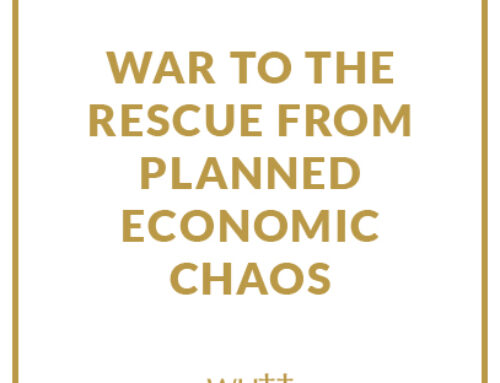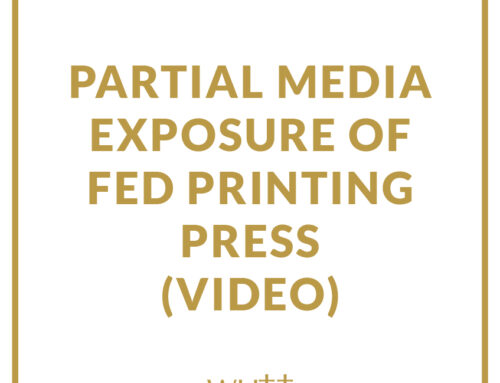The joyful celebrations in Cairo sadden me because I know what Egyptians are up against. If you don’t, you need to read this series and understand it. I have spent 15 years championing lost causes. Sadly, Egypt seems to be one more. I would remind those who feel this, too, that Jesus did not call disciples to win, but to follow and be faithful. Unless you are prepared to be on the losing side, you cannot engage with the world in which you live.
The odds of the Egyptians finding freedom is about the same as our own odds of keeping our freedoms. Why? Because we and the Egyptians have the same half-hidden enemies.
According to Reuters, Mohammed Morsi, “Egypt’s first freely elected president, whose powers have already been curbed by the army, began work on a coalition Monday, after touring his new palace, once home of Hosni Mubarak who banned his movement for three decades.” Reuters is right, but they only cover one-third of the problem: the military.
My own lecture, Egyptian Revolt Must Nationalize the Central Bank, was recorded on February 11, 2011, as follows:
We should not fear the Muslim Brotherhood; the Central Bankers are a greater threat. Friday, February 11, was a day of jubilation in Egypt. But the revolution has a huge hurdle yet to cross, one that few mention. Egypt’s Central Bank, or “Federal Reserve” as we would call it, appears to be still actively in control of Egypt’s finances.
The Central Bank announced through the government’s Minister of Finance, Dr. Samir Radwan, that it would provide necessary funds to pay salaries and essentials to keep the economy going (this means paying the army). This sounds like good news to the many who receive stipends from the government, but it also means that a hidden banking power has ultimate control over Egypt.
This writer does not know who owns Egypt’s Central Bank. It is a secret (as is the ownership of the Federal Reserve Bank of New York). Certainly it is not owned by the thousands who protested against the Mubarak government. But the revolution cannot be complete until it is nationalized or abolished.
The Central Bank of Egypt states on its website:
The CBE is an autonomous public legal person, assuming the authorities and powers vested therein by Law No. 88 for 2003, and the Presidential Decree No. 64 for 2004, Issuing the Statute of the Central Bank. The funds of the Central Bank are considered private funds.
According to its website, the Bank came into existence under the first president of Egypt, General Gamal Abdel Nasser Hussein, in 1961, some 20 years before Mubarak came to power. Nasser may have done some good for Egypt, but he left a privately-owned Central Bank for the heroes of Tahrir Square to deal with.
The much maligned Muslim Brotherhood was in existence in 1928 to oppose British occupation 33 years before “The Bank.” Nasser suppressed and tried to dissolve the Brotherhood, as did each subsequent president, including Mubarak, but it seems no one challenged The Bank.
The Egyptian people are a step ahead of we Americans, they have organized and taken to the streets; we have not. I can only hope brave Egyptians have an informed leadership that understands the Central Bank; complacent Americans are a long way from understanding the financial power that controls us by opening and closing the money spigot.
A story often told is that when leaving the Constitutional Convention, Benjamin Franklin was asked by a citizen, “Well, what kind of government have you given us?” And Franklin is said to have replied, “a Republic, if you can keep it.”
The United States began as a “republic” and did keep it for a while, with some bending and twisting. But it ended on Christmas Eve in 1913 when Congress was fooled into passing the Federal Reserve Act, signed into law by President Wilson..Today there seems to be two flavors of “Central Banks” – privately-owned and controlled ones like ours, England’s, (and Egypt) and a few publicly-controlled ones, such as those in China, Venezuela, and Iran, where the government control of the Bank is in the hands of whoever controls the government.
Let us pray for our own benefit that those who lead the revolution in Egypt, and we suspect the Muslim Brotherhood is a large part of it, will use their power to end Central Bank control. Without this, a representative government cannot long succeed. Maybe Americans will someday follow suit.- end
Next time: Part II: The role of some, but not all, churches in destroying Egypt and neighboring Gaza
Link:
Egyptian Revolt Must Nationalize the Central Bank
Charles E. Carlson Feb 14, 2011


